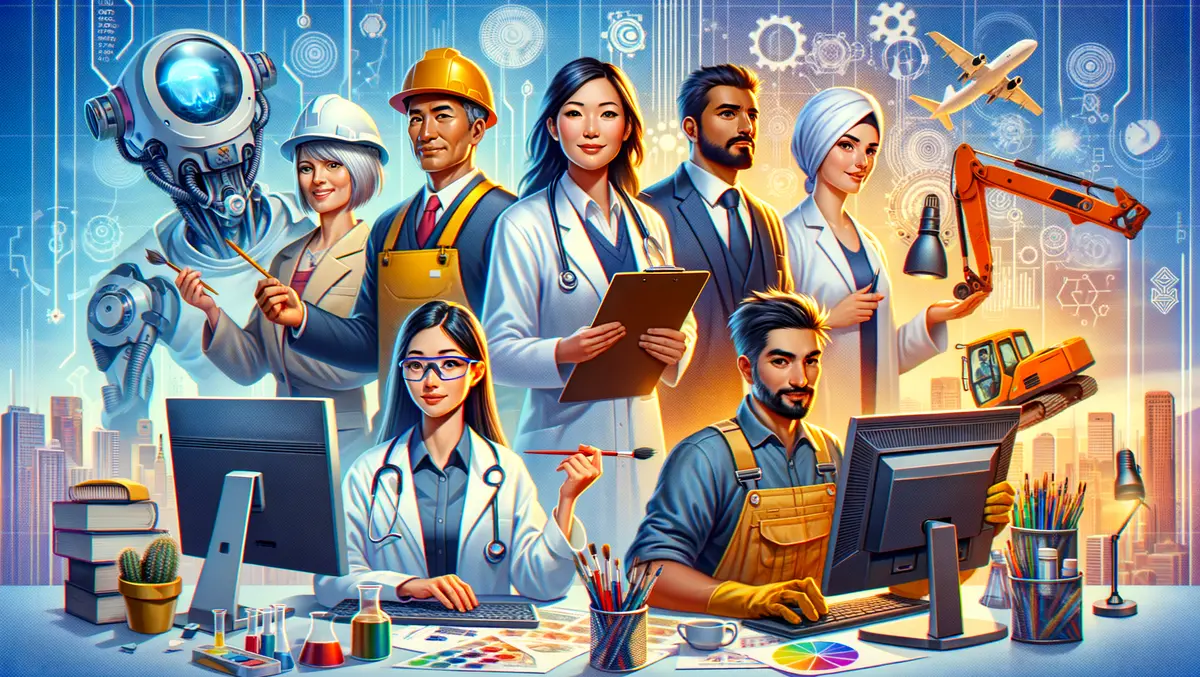
Australian workers unphased by AI's impact on jobs, survey reveals
New survey data from job site Indeed shows that 91% of Australian workers are not afraid of the impact that artificial intelligence (AI) could have on their jobs, even though they understand that the skills required for their roles could change significantly over the next five years.
The data, which seeks to challenge prevalent narratives of AI destroying employment prospects, reveals that a substantial majority of workers feel prepared to adapt to AI-led changes. The reasons for this optimism range from feeling capable (43%) and prepared (40%) to excited (33%) about the forthcoming invasion of AI in the workplace.
Indications of the AI adoption trend assume larger proportions when it comes to Australia's white-collar workforce. Over half (56%) of white-collar workers reportedly use AI at work. More importantly, they show a keen disposition to seek AI's assistance for work-related tasks, with 61% admitting to doing so over a colleague.
The changing face of employment in Australia due to AI adoption becomes even clearer as half of white-collar workers who use AI acknowledge that their job descriptions have undergone changes. Meanwhile, 57% admit that the skills needed for their roles have likewise evolved. Looking forward, even broader shifts are expected: 70% of all workers believe that the competencies needed for their roles will change, with 28% anticipating a sizeable shift.
The AI landscape, as reflected in Australian job postings on Indeed, shows that around 21% of jobs face a high exposure to generative AI tools such as ChatGPT. These tools can accomplish at least 80% of the skills demanded by these jobs at a competent level. A further 56% of job postings exhibit moderate exposure to AI tools, which are able to handle between 50% and 80% of required skills at a superior level.
Interestingly, employers are not shying away from investing in AI. Approximately 73% of white-collar workers have access to AI tools at work. Moreover, 40% report that their use of AI has been encouraged by their employers. Of these workers, half disclose that their employers have offered training on AI tool usage, while an additional 38% express their desire for such training. Furthermore, a significant number, 71% of workers, feel supported by their employers to adapt to changes in their roles. This figure is notably higher than the global average of 65%.
In terms of task performance, AI draws praise from Aussie workers for its prowess in areas like data analysis, content creation and routine tasks. The workers also perceive AI as being equally or more effective at problem-solving and attention to detail. However, humans continue to hold sway in decision-making, critical thinking, and customer service.
Sally McKibbin, Career Expert at Indeed, highlights Australian workers' confidence in harnessing AI's potential. Kibbin draws attention to Australia's global rank as the third most AI self-assured workforce, trailing behind India and the US. While acknowledging that AI could cost more jobs than it might create, McKibbin underscores the fact that the majority of Australian workers remain unfazed and are ready to embrace challenges that come with AI integration in the workplace. The future, she suggests, depends on how well employers equip their organisations and employees with AI skills to adapt to workforce changes.


